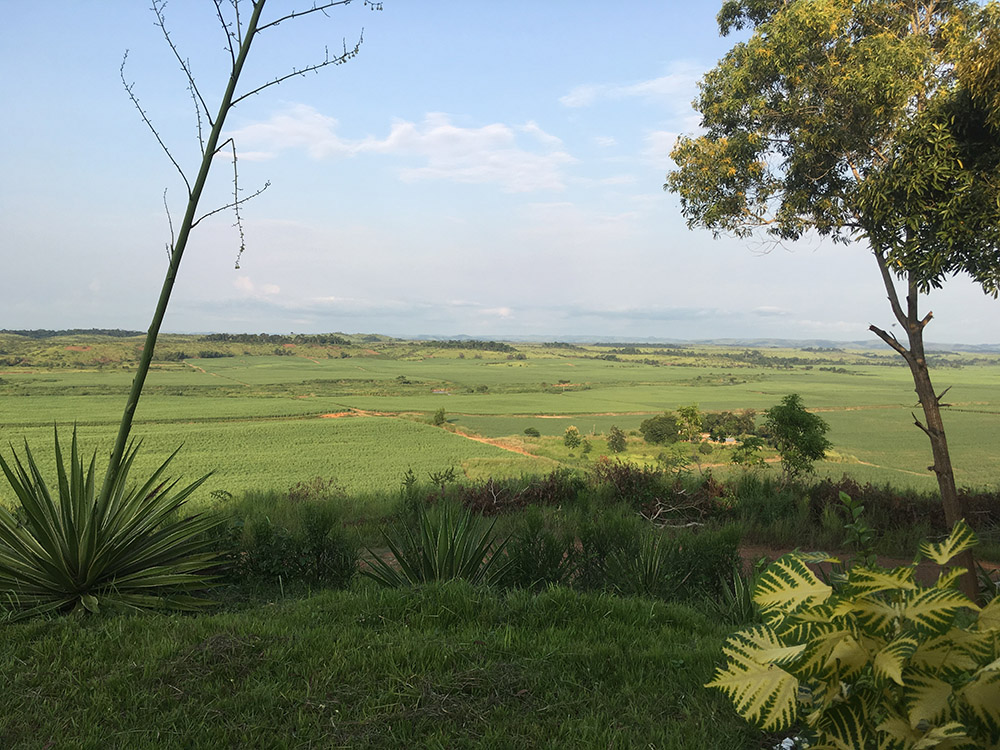Since last year, 35,000 people in Uganda’s Kiryandongo district were forced from their lands to make way for large-scale farming, including at gunpoint and by a sugar firm with international backing. Community members continue to be intimidated and tortured during a COVID-19 lockdown.
The sugar industry is clearly still a long way from achieving sustainable and human rights-compliant sugar production. Despite certification initiatives having the objective of sustainability, sugar plantations from Cameroon to Cambodia continue to ignite controversy and conflict. The leading multi-stakeholder initiative governing the sugarcane industry, Bonsucro, is in the process of revising its standards for sugar production. While Bonscuro’s new draft standard includes important elements like a requirement to obtain a community’s free, prior and informed consent, it creates loopholes for companies by limiting those elements’ application or using vague definitions. Concrete revisions and new financing initiatives are needed to make the standard truly effective.
Why ignoring communities doesn’t work
Following the “global land rush,” driven in part by the 2007-2008 food price crisis, many countries in the global south considerably increased land allocations to agribusiness and other resource investments. What we have seen since is a crisis of poor community engagement, including for sugarcane concessions, with companies often pursuing the self-defeating strategy of ignoring or denying the legitimate land rights of local communities.
In addition to violating human rights, excluding communities from project-related decision-making spells trouble for agribusiness. Research reveals that the African sugarcane sector has been especially vulnerable to operational risk linked to poor community engagement, with community disputes often lasting over 10 years.
The disastrous outcomes—for community members, governments, and sugar producers—of inadequately including communities in decisions reveal the need for what the human rights community and technical experts have long called for: “transparent, consultative and participatory processes” for decision-making throughout the life of an investment. But this quote isn’t from a human rights body; it is text that Bonsucro recently deleted from its previous standard. By eroding standards for transparency, consultation and community participation, Bonsucro would be shepherding its members away from sustainability.
As written, the new draft standard emphasizes what can be measured. Has the company developed an engagement plan? Check. While this approach might make auditors’ lives easier, it risks rendering the entire standard meaningless. An audit certifying compliance of a narrow set of indicators may enable sugar companies to check the certification box. But if the standard doesn’t include necessary community protections, it won’t stop companies from causing local conflict—conflict that can cost them over $100 million or force them to abandon projects that have already eaten through tens of millions of dollars of investment before generating any revenue.
Taking community participation seriously
Bonsucro needs to take human rights seriously, and ensure coherence within its standard. As highlighted in a recent submission by the Columbia Center on Sustainable Investment, one crucial step will be for Bonsucro to grapple with what “free, prior and informed consent” (FPIC) actually means in practice. Far from being a bargaining chip that is “extracted” from a community, FPIC informs how businesses should conduct the different management and decision-making processes that the new draft standard requires. Among many other things, FPIC entails that an impact assessment should be co-designed with, and provide participatory mechanisms for, community members, and that they have the opportunity to monitor the company’s operations and hold it to account.
Yet communities will often require independent support—from civil society organizations, lawyers or scientists, among others—to access and understand information about the project and navigate participatory processes. This is not news for agribusinesses; another sustainability initiative found a plantation operator in breach of its requirements to obtain consent in part because of the community’s likely lack of legal support during negotiations with the operator.
Basket funds
Because technical support will often be a crucial enabler of community participation, Bonsucro needs to provide a means for sustainably financing such support. Specifically it should require its operators to make regular financial contributions to a basket fund dedicated to financing independent technical support to affected communities.
A basket fund would be independently administered, receive financial contributions from multiple sources—in this case, relevant Bonsucro members—and make grants to pay for technical support for affected communities. It could be especially well suited to finance technical support for community members navigating Bonsucro’s updated grievance mechanism and its complaints process. Requiring operators to make regular financial contributions to such a fund would also assist with the monitoring and auditing of operator compliance—something another sector has revealed is desperately needed— by providing another measurable indicator.
Multi-stakeholder initiatives continue to be slammed for failing to deliver on the promise of responsible business conduct and the protection of human rights. Bonsucro itself has also gotten its fair share of flak. It is time for the initiative to unflinchingly define what responsible large-scale sugarcane production looks like and to require that its members meet that standard. Articulating requirements for meaningful community participation in different processes throughout the lifecycle of a sugarcane project and requiring member contributions towards a basket fund are two concrete measures that Bonsucro should take right now.
Sam Szoke-Burke is senior legal researcher at the Columbia Center on Sustainable Investment.
This piece is re-posted with permission from the Earth Institute's blog, State of the Planet.

